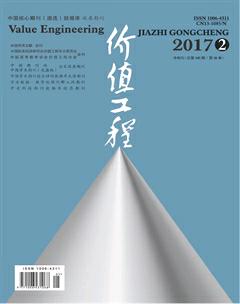基础设施PPP项目全寿命周期VFM评价程序研究
崔彩云++李会联++柳锋



摘要:我国PPP项目物有所值评价尚处于起步阶段,基本理论和方法尚不成熟,设计合理的评价程序能够进一步发挥VFM评价的作用。本文首先分析我国基础设施项目决策立项程序和PPP项目操作流程;接着在分析国外VFM评价体系的基础上,总结出VFM评价主体具备的良好的评价环境、具备一定的技术支持职能、与职责相匹配的行政权力、充分利用第三方咨询机构等特征,并得出地方政府行业主管部门适宜作为我国VFM评价主体的结论。最后,本文设计出包括项目识别、项目准备、项目采购、项目执行和项目移交五个阶段的VFM评价程序,具体包括每一阶段VFM评价的操作过程、判定方法和退出方式,其中项目识别阶段包括定性评价、定量评价和敏感性分析以确保PPP项目决策的科学性,项目执行阶段进行循环VFM评价以确保PPP项目过程监控的有效性。
Abstract: In china, the theory and method of VFM assessment are still not very clear, which need a more mature assessment procedure to achieve effectiveness. On the basis of the analysis of the infrastructure projects decision-making procedure, PPP project operating processe in China, and the features of VFM assessment subject in other countries, this paper summarizes the VFM assessment subject has the characteristics of good evaluation environment, a certain technical support functions, responsibilities to match the administrative power, full use of the third party advisory bodies and others, and it founds that department of industry in local government is the proper VFM assessment subject in China.VFM assessment procedure is also designed which includes operation process, judgment method and withdrawing way in five different stages. The project identification stage includes qualitative evaluation, quantitative evaluation and sensitivity analysis to ensure the scientific nature of the PPP project decision-making, and the cycle VFM assessment of the project implementation phase is to ensure the effectiveness of PPP project process monitoring.
关键词:政府与社会资本合作;物有所值评价;评价程序;决策立项;评价主体
Key words: public private partnership;value for money;assessment procedure;decision-making;assessment subject
中圖分类号:F810.2 文献标识码:A 文章编号:1006-4311(2017)05-0240-04
0 引言
随着PPP(Public-Private Partnership)模式在我国基础设施项目中应用的推广,物有所值评价(Value for Money, VFM)作为PPP项目采购模式选择的有效方法[1]在PPP项目决策立项中发挥着巨大的作用[2]。完备的评价程序是PPP项目进行VFM评价的基本前提,VFM评价程序的设计必须与现有基础设施项目立项程序和PPP项目操作流程有机结合,使VFM评价能够在PPP项目实施的关键节点发挥作用。本文主要以基础设施PPP项目立项及操作流程分析为基础,完成VFM评价过程的设计。
1 基础设施项目决策立项流程分析
我国基础设施项目立项流程通常分为立项建议和立项审批两个阶段[3]。在项目立项申请之前,通常要进行投资机会研究、项目建议书、可行性研究等工作,在发改委立项审批之前通常还要经过环保部门的环保审批、规划部门的选址意见、国土资源部门的用地预审,有时还要经过消防部门的消防审批。具体立项流程如图1所示。
在项目立项建议阶段,投资机会研究是指政府相关部门以公共利益需求的角度,从错综复杂环境中选择立项机会,经过方案分析选择,再将这种立项机会转入项目建议书阶段。可行性研究评价是立项建议阶段主要的实质性评价阶段,以预测项目未来成本和收入为基础分析项目财务可行性;以分析项目对国家进出口的影响为基础进行国民经济评价,论证项目从国家角度的经济可行性;以研究项目与所在地互适性、文化影响、生活水平影响等为内容进行社会影响评价,以测评建设和使用阶段对环境的影响为目的进行环境影响评价,为后续选择项目是否采用PPP模式奠定了基础。
2 基础设施PPP项目操作流程分析
2014年11月29日,财政部《关于印发政府和社会资本合作模式操作指南(试行)的通知》(以下简称“PPP指南”)中[4],将PPP项目的操作流程分为了项目识别、项目准备、项目采购、项目执行和项目移交五个阶段,具体过程如图2所示。

